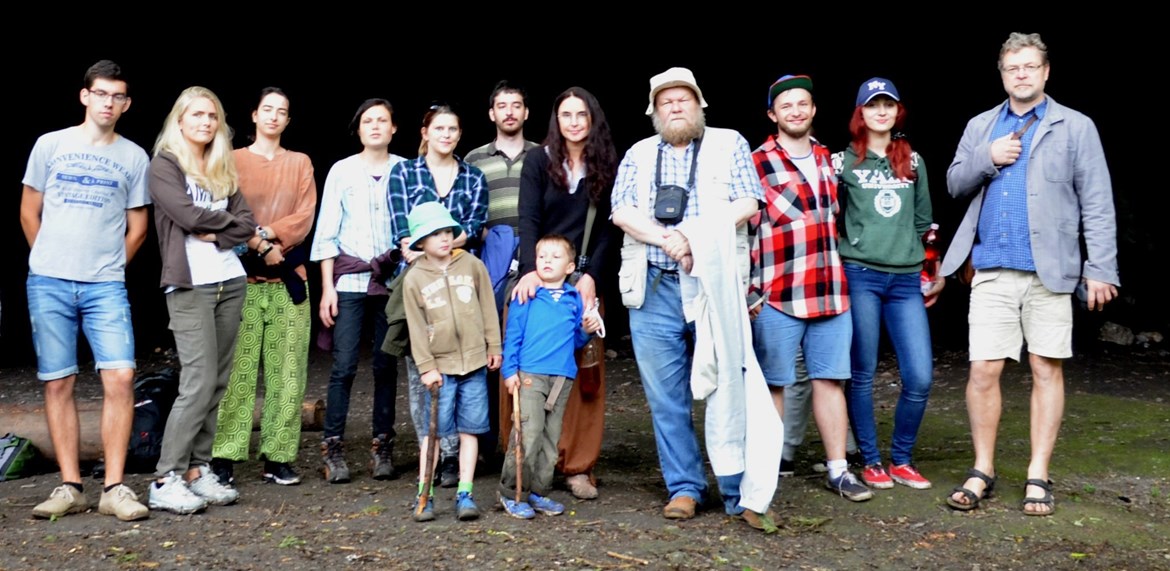What does PANE offer?
Thanks to the complex tailored program, students of the Bachelor and Master studies are educated, apart from the archaeology of the Near East, also in related fields: applied cultural anthropology, experimental archaeology, natural sciences, IT, basics in organization and project management, Arabic and Turkish. Intercultural communication, team work, media competencies, etiquette, self-reliance and overview of current social and cultural trends are emphasized. The education of graduates qualified to succeed in the competitive environment is furthered by active use of English (large part of professional lectures in English, possibility to write theses in English, field research and study stays abroad). Students have the opportunity to get to know various teaching methods and study requirements of different universities (Yale, Berlin, Leiden, Warsaw, Florence, Vienna, Barcelona, Istanbul) through the external lecturers, majority of whom are the top specialists in their fields. This helps the students in preparation for possible study or work abroad.
During their study the students have the possibility to take part in internships and research projects abroad (e.g. Oman, Jordan, Turkey, Iraq, Turkmenistan, Saudi Arabia, Armenia, Azerbaijan, Israel, Crete, Russia, Spain, Germany, USA).
Characteristics of PANE
Related to the history of its establishment PANE is characterized by:
- focus on archaeological field research and gaining of new experiences
- cultivation of international network of contacts
- multi-linguistic platform
- offers space for further development, interdisciplinary cooperation and new trends
- student-oriented
- responds to events in all areas related to archaeology (i.e. other scientific disciplines, public, media, communities, etc., requires at least basic overview of current intelectual or rather social discourse)
Cultural Anthropology: hand in hand with Archaeology
One of our priorities stemming from the strong connection with cultural anthropology is to lead students to teamwork and ethical conduct in a multicultural environment not only in the Near East. We encourage orientation on practical, field dexterity, interdisciplinary approach and discovering new points of view on various scientific problems.
Added value of PANE
The crisis in the countries of the Near East has been a determining factor since the beginning of the 21st century, proved by its impact on events in European metropolises. The path of isolation is probably not a permanent strategy. After further worsening, it will undoubtedly come to the renewal of regular cultural and economic cooperation with the region of West Asia. In the future this will demand the engagement of academic youth with the required qualification. Their benefit will surely be gradual years-long gaining of experience directly in the field. PANE, whose key interest is applied archaeology, may function as suitable warrantor.

About us
The Centre of Prehistoric Archaeology of the Near East is a young institution that was established in 2009 as a natural outcome of the activities of Department of Archaeology and Museology (Department of Archaeology and Museology) in Syria. The main goal of Prehistoric Archaeology of the Near East (PANE) is to educate practice oriented specialists that will excel in their field and will be successful in local and European job market.
History
The beginning of Centre of Prehistoric Archaeology of the Near East (PANE) is tied to year 2005 when the Masaryk University started archaeological research in the Near East. At that time a team led by Inna Mateiciucová established a cooperation with Syrian-Polish archaeological mission in the micro-region of Tell Arbid in NE Syria. The team focused on the research of Late Neolithic site Tell Arbid Abyad (6200 - 5600 BC). These activities and the initiative of prof. Zdeněk Měřínský comprised the basis for accreditation of a new field of study and for establishment of Centre of Prehistoric Archaeology of the Near East (then a part of the Department of Archaeology and Museology, Faculty of Arts, Masaryk University). Currently the centre has two employees - archaeologist Mgr. Inna Mateiciucová, PhD. and cultural anthropologist Dr. phil. Maximilian Wilding.
“... the holy men sat in an atmosphere reeking of antiquity, so thick with the dust of ages that you can't see through it - nor can they.”
Gertrude Bell

